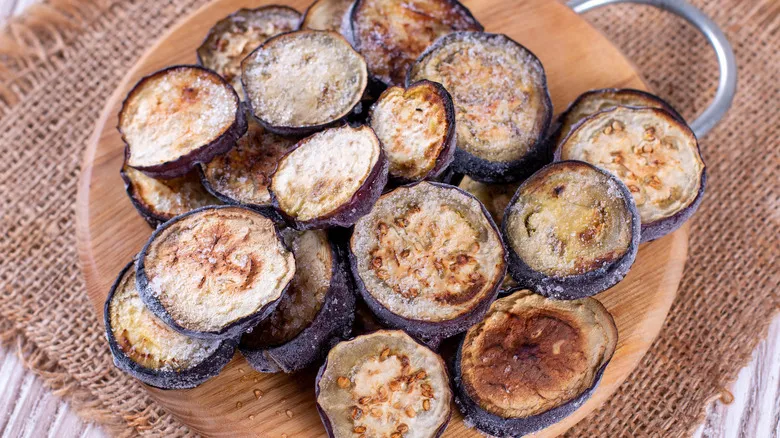Avoid mushy, unappealing eggplant by cooking before freezing

When prepared correctly, few dishes can rival the deliciousness of crispy, fried eggplant parmesan or perfectly roasted eggplant in a classic Indian recipe like baingan bharta. However, eggplant is a sensitive ingredient, and if you've encountered mushy, bland, or tough eggplant, you're not alone.
To enhance the quality of fresh eggplant before cooking, generously salting it to remove excess moisture is essential. This high water content can also pose a problem when freezing unless the eggplant is cooked first, even if just briefly blanched. When getting ready to freeze, think about how you plan to use the eggplant later. If you intend to incorporate it into a stew or dip, roasting the whole eggplant, pureeing the flesh, and then freezing it in a bag is the best approach. If you plan to add cubes or slices to a stir-fry, sandwich, or casserole, cook the eggplant in the oven or on the stovetop and freeze the pieces (there's no need to peel it unless you prefer to). When you're ready to use it, simply let the frozen eggplant thaw in the fridge overnight.
For frozen eggplant that tastes as fresh as possible, it's a bonus if you can buy it at the farmer's market when it's in season, typically from late summer to early fall in most regions. When pre-cooked, any variety of pureed or cubed frozen eggplant can last for up to 12 months, allowing you to enjoy peak flavors and the nutritional benefits of freshly picked produce all year long.
Recommended

Make Nuts Last Longer By Stashing Them In The Freezer

Is A Bread Box The Best Way To Store Your Bread?

How To Properly Store And Reheat Gravy

Should You Be Storing Tomatoes At Room Temperature Or In The Fridge?
Next up

